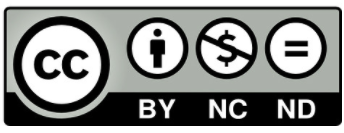La naturaleza estadística de la causalidad
DOI:
https://doi.org/10.53382/issn.2735-6140.66Resumen
Traducción del inglés de Natalia Sohee Chung Park
https://orcid.org/0009-0006-9188-210X
Este trabajo reciente de David Papineau retoma el proyecto de la exacta relación entre las correlaciones estadísticas y la causalidad desde un análisis a posteriori acerca de naturaleza de la causalidad. Da cuenta del comportamiento estadístico de la causalidad y propone un enfoque y método reduccionista nuevo para abordar la causalidad, entre sus ventajas, la capacidad de responder acerca de la asimetría temporal entre causa y efecto, explicar la discrepancia entre causalidad y causalidad caso–particular (singular–case causation), y entre otros problemas que típicamente se enfrentan los enfoques y métodos tradicionales de inferencias causales o modelamiento de estructuras determinísticas causales. La importancia de este trabajo filosófico radica en la continuación del proyecto del uso de ecuaciones estructurales determinísticas para hacer inferencias causales, su clara y rigurosa metodología, su aplicación a casos relevantes para explicar más acabadamente su teoría causal (uno de los casos siendo el de las correlaciones EPR), y su novedoso aporte a la estadística y a la metafísica de la causalidad.
Este artículo fue publicado originalmente en: David Papineau, The Statistical Nature of Causation, The Monist, Volume 105, Issue 2, April 2022, Pages 247–275, https://doi.org/10.1093/monist/onab034
Citas
Beebee, Helen y Peter Menzies. “Counterfactual Theories of Causation”, The Stanford Encyclopedia of Philosophy, ed. Edward Zalta, 2020.
Blalock, Humbert. Causal Inferences in Nonexperimental Research. New York: W.W. Norton, 1964.
Cartwright, Nancy. Nature’s Capacities and their Measurement. Oxford: Oxford University Press, 1989.
Cartwright, Nancy. “Against Modularity, the Causal Markov Condition, and any Link between the Two: Comments on Hausman and Woodward”, British Journal for the Philosophy of Science 53(2002): 411–53.
Ehring, Douglas. “Papineau on Causal Asymmetry”, British Journal for the Philosophy of Science 38 (1987): 81–87.
Einstein, Albert, Boris Podolsky y Nathan Rosen. “Can Quantum–Mechanical Description of Physical Reality Be Considered Complete?”, Physical Review 47 (1935): 777–80.
Elga, Adam. “Statistical Mechanics and the Asymmetry of Counterfactual Dependence”, Philosophy of Science 68 (2000): 313–24.
Good, I.J. “A Causal Calculus I–II,” British Journal for the Philosophy of Science 11 (196162): 305–18; 12: 43–51.
Glymour, Clark. “Making Things Happen by James Woodward,” British Journal for the Philosophy of Science 55 (2004): 779–90.
Hausman, Daniel. Causal Asymmetries. Cambridge: Cambridge University Press, 1998.
Hausman, Daniel y James Woodward. “Independence, Invariance and the Causal Markov Condition”, British Journal for the Philosophy of Science 50 (1999): 521–83.
Hesslow, Germund. “Two Notes on the Probabilistic Approach to Causality,” Philosophy of Science 43 (1976): 290–92.
Hitchcock, Christopher. “Causal Models”, The Stanford Encyclopedia of Philosophy ed. Edward Zalta. 2020.
Hoover, Kevin. “Nonstationary Time Series, Cointegration, and the Principle of the Common Cause,” British Journal for Philosophy of Science 54 (2003): 527–51.
Lewis, David. “Counterfactual Dependence and Time’s Arrow,” Nous 13 (1979): 455–76.
Loewer, Barry. “Counterfactuals and the Second Law”. Causation, Physics, and the Constitution of Reality: Russell’s Republic Revisited. eds. Huw Price y Richard Corry. New York: Oxford University Press, 2007. 293–26.
Papineau, David. “Response to Ehring’s ‘Papineau on Causal Asymmetry’”, British Journal for the Philosophy of Science 4 (1988): 521–25.
Papineau, David. “Can We Reduce Causal Direction to Probabilities?”, Philosophy of Science Association, 2 (1992): 238–52.
Papineau, David. “Metaphysics over Methodology: Why Infidelity Provides No Grounds to Divorce Causes from Probabilities”, Stochastic Causality eds. Maria Carla Galavotti, Patrick Suppes y Domenico Constantini. Stanford: CSLI Publications, 2001. 15–38.
Pearl, Judea. Causality: Models, Reasoning, and Inference. Cambridge: Cambridge University Press, 2000.
Peters, Jonas, Dominik Janzing y Bernhard Schölkopf. Elements of Causal Inference: Foundations and Learning Algorithms. Cambridge MA.: MIT Press, 2017.
Reichenbach, Hans. The Direction of Time. Los Angeles: University of California Press, 1956.
Salmon, Wesley. Scientific Explanation and the Causal Structure of the World. Princeton: Princeton University Press, 1984.
Schurz, Gerhard y Alexander Gebharter. “Causality as a Theoretical Concept,” Synthese 193 (2016): 1073–103.
Simon, Herbert. 1953. “Causal Ordering and Identifiability”. Studies in Econometric Method: Cowles Commission for Research in Economics, eds. William Hood y Tjalling Koopmans, New York: Wiley, 1953. 49–74.
Sober, Elliott. “Venetian Sea Levels, British Bread Prices, and the Principle of the Common Cause,” British Journal of Philosophy of Science 52 (2001): 331–46.
Sosa, Ernest y Michael Tooley. “Introduction”. Causation, eds. Ernest Sosa y Michael Tooley. Oxford: Oxford University Press, 1993. 1–32.
Spirtes, Peter, Clark Glymour y Richard Scheines. Causation, Prediction and Search. New York: Springer, 1993.
Spohn, Wolfgang. “Bayesian Nets Are All There Is to Causal Dependence”. Stochastic Causality eds. Maria Carla Galavotti, Patrick Suppes y Domenico Constantini. Stanford: CSLI Publications, 2001. 157–72.
Strevens, Michael. “Review of Woodward, Making Things Happen”, Philosophy and Phenomenological Research 74 (2007): 233–49.
Strevens, Michael. “Comments on Woodward, Making Things Happen”, Philosophy and Phenomenological Research 77 (2008): 171–92.
Suppes, Patrick. A Probabilistic Theory of Causality. Amsterdam: North–Holland Publishing Company, 1970.
Woodward, James. Making Things Happen. A Theory of Causal Explanation. New York and Oxford: Oxford University Press, 2003.
Woodward, James. “Response to Strevens,” Philosophy and Phenomenological Research 77 (2008): 193–212.
Zhang, Jiji y Peter Spirtes. “Choice of Units and the Causal Markov Condition”. Scientific Explanation and Methodology of Science eds. Guichun Guo y Chuang Liu. Singapore: World Scientific, 2014. 240–51.
Descargas
Descargas
Publicado
Cómo citar
Número
Sección
Licencia
Derechos de autor 2024 David Papineau

Esta obra está bajo una licencia internacional Creative Commons Atribución-NoComercial-SinDerivadas 4.0.




